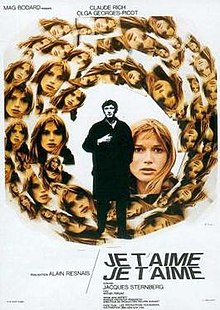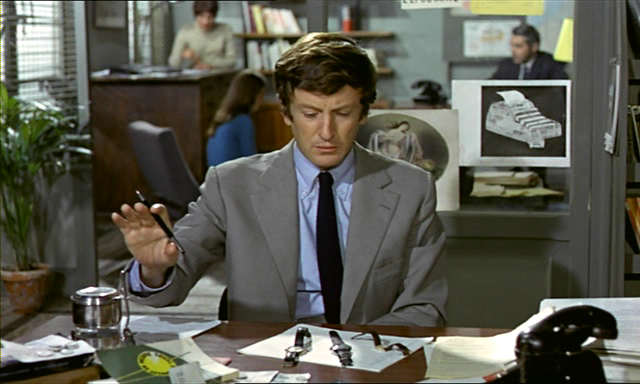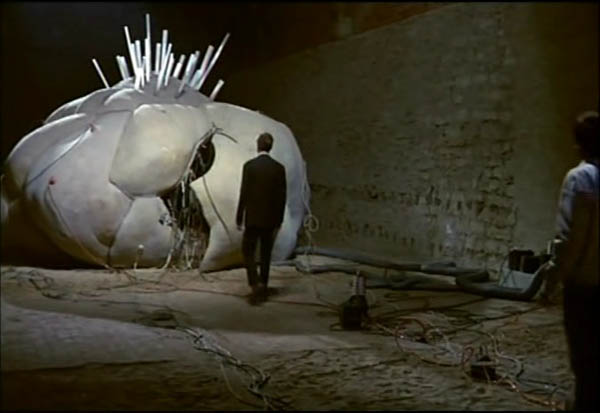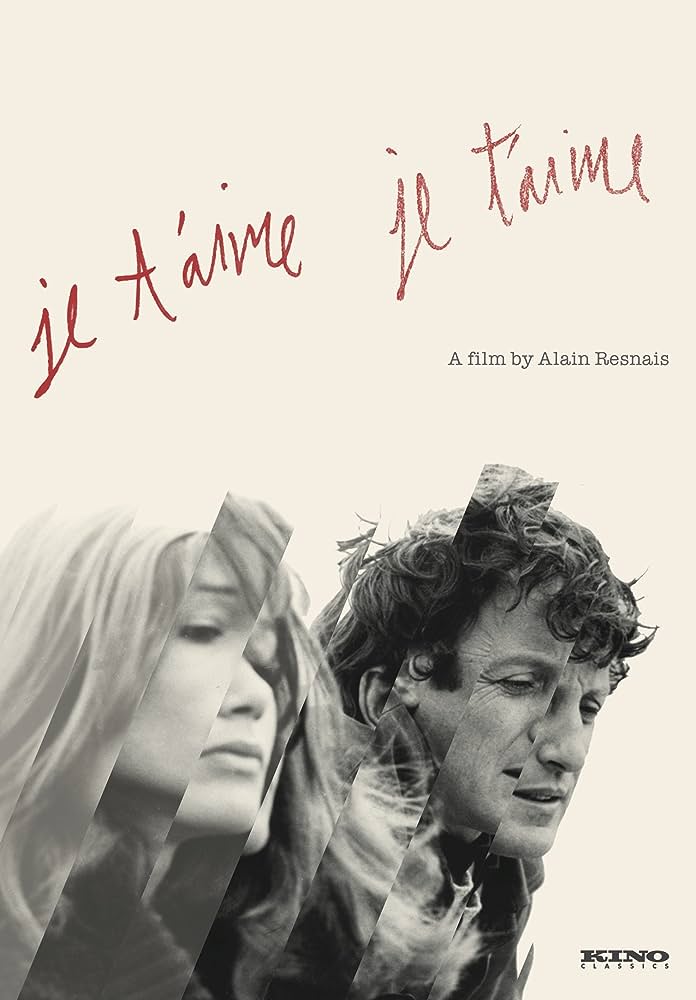Je t’aime, Je t’aime (1969)
IMDb meta-data is 1 hour and 40 minutes of runtime, rated 7.2 by 3,000 cinematizens.
Genre: Sy Fy.
DNA: France.
Verdict: Je suis perdu.
Tagline: Who cares.

Claude Rich gives a superb performance but it just doesn’t add up or hold interest. It is a series of tableaux, some repeated too often, with little momentum or coherence.
In sum, he is a rising man in a publishing house who marries a co-worker; she tells him that she likes him but doesn’t love him or care much about him or anything else. She is and remains clinically indifferent about anything and everything. (She would make a perfect manager.) It just gets worse when they move to Glasgow. Yep, just the cure for depression, a winter in damp, drizzly, dank, and dark Scotland. She dies. He feels responsible. He probably wasn’t responsible but it is ambiguous, and in any event that he feels responsible for her death makes it so.
He volunteers for a time-travel experiment, since he, too, is now clinically depressed (from reading the script). Seven scientists ensconce him sous vide in a bladder where he is to time travel to the past. What is the past but memory. The result is a shuffled mixtape of his memories, some on a loop, many feature Olga. It is vaguely implied that reliving these memories changes them somehow but that is only a speculation, not developed in the film.

Some of the memories are more likely to have been dreams with no basis in fact, like one where he is slaving away over copy late into the night when five of his superiors surround his desk and make disparaging comments on his work as he toils away. It may have felt like that but I doubt five senior executives stood around his desk at midnight. But then does dreaming it was so make it so in a memory? What is the membrane between memory and dream?

By the way, he is like many other celluloid time travellers in that he wants to go back in time, not forward. Wells’s eponymous time traveller went forward by mistake, I seem to recall.
Rich is in nearly every scene and carries the film with his impressive range of emotion, thought, confusion, loss, depression, and more. His last credit was in 2015.

